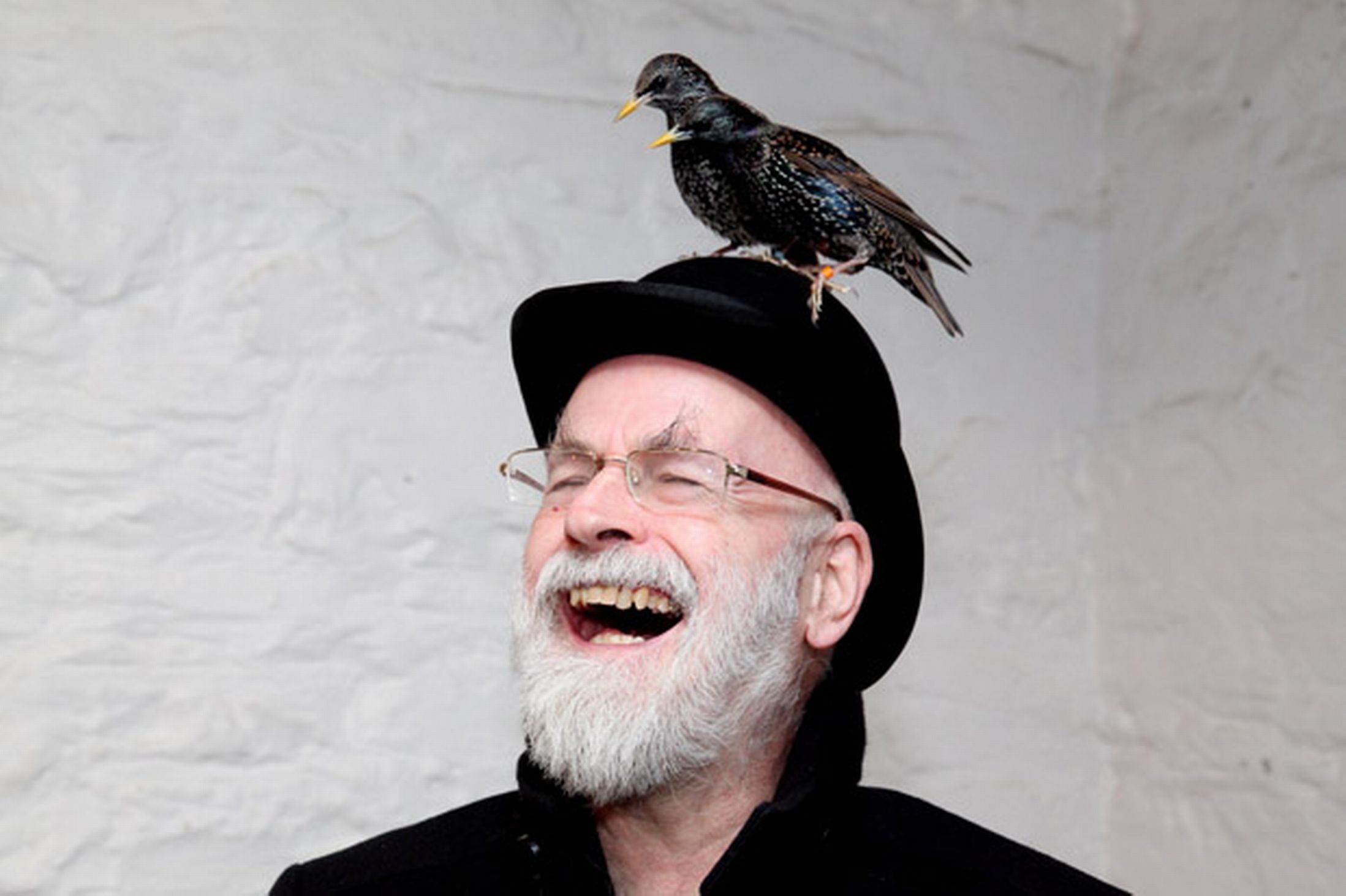
Following the announcement of his death on March 12th, social media was flooded with praise of this man whose books had touched so many people, of every age, sex, and nationality, a man who could take the strangest concepts (like a disc-shaped world, carried by four elephants, on the back of a flying space turtle) and make them so wonderfully ordinary that you often forgot that he was writing about a different world at all. Fantasy is probably the most harshly criticised genre in all of literature, and a notoriously difficult one to do well in. Its many detractors will complain that it’s too unrealistic, too far-fetched, or that they’d rather read something set in the “real” world.
Lessons of fantasy
Pratchett was, obviously, aware of these criticisms. He once compared fantasy to an exercise bike – it won’t take you anywhere, but it’ll tone up the muscles that can. But his stories did so much more than that. His works teach you much about your own world, as all good fantasy should, but his wisdom was so much more poignant for being unexpected. It was almost like he tricked you – you went into one of his novels expecting to read a silly story about some witches, and somehow came out of it with huge revelations about the nature of humanity. He had this incredible knack for taking the most complex, nuanced issues, such as war, racism, good and evil, and distilling them down to something so simple, so ridiculous, that you wonder how you never saw them like that before.
In one of my personal favourite examples, from the opening of The Carpet People, he sums up the problems with human relations in a few simple sentences: “They called themselves the Munrungs. It meant The People, or The True Human Beings. It’s what most people call themselves, to begin with. And then one day the tribe meets some other People or, if it’s not been a good day, The Enemy. If only they’d think up a name like Some More True Human Beings, it’d save a lot of trouble later on.”
Sense of humour
What became clear in the days following his death, and the tributes and obituaries came rushing in, was that his readers valued, above all else, his incredible sense of humour – not only in his fiction, but in real life as well. Even people who had never read Discworld, or Good Omens, or The Carpet People, could appreciate this man in a silly hat, with his particular brand of self-deprecation, who often wore a T-shirt that read “Tolkien’s dead, JK Rowling said no, Philip Pullman couldn’t make it… Hi, I’m Terry Pratchett” when invited to to conventions. Some might claim that he was almost too irreverent, or that there was no depth or substance to his works – as if making people laugh wasn’t a worthwhile achievement in itself.
It was almost like he tricked you – you went into one of his novels expecting to read a silly story about some witches, and somehow came out of it with huge revelations about the nature of humanity.
There was something incredibly generous about this sense of humour of his. This was a man with an imagination of almost unparalleled scope, who, when creating the character of Death (who appears, ominously but realistically, in almost every one of his novels) could have made him terrifying, or intimidating, or creepy, like so many other authors before him. Instead, Pratchett’s Death (or DEATH, as he’d prefer to be called) is a darkly funny and incredibly sympathetic. He likes cats. He rides a huge, magic war-horse, whose name is Binky. Words are powerful things, as Pratchett often said himself, and rather than use his power to create the kind of horror and despair that genres like fantasy thrive on, he chose to give us a world in which everything, even death, was slightly ridiculous, and was nothing to be afraid of.
As a teenager, and even as an adult having a bad day, every little mishap or setback can seem like the end of the world, and relatively simple problems feel insurmountable. At times like these, few things are more valuable than a sense of humour, and a sense of perspective like Terry Pratchett’s. Nothing – not death, not even the literal end of the world – is so horrific that a change of attitude can’t make it seem okay. Life is strange, and complicated, and often inexplicable. Things can and will go horribly wrong, and even if they don’t work out how you expected, it’ll be (mostly) fine. Sometimes life sucks, his books tell us, but why should that bother you?
Facing death
Even towards the end of his life, as his health and his mind deteriorated, he never lost that sense of humour that made so many readers fall in love with him. He referred to his awful degenerative condition as an “embuggerance”, and only complained that he couldn’t choose to end his life on his own terms and meet his old friend Death at his own convenience. Despite being faced with the prospect of an early and likely difficult death, he never seemed to be afraid of death itself – perhaps because he’d spent so much time in his presence already. He was only afraid of living in a world where he could no longer write, or even remember his own stories – where he could no longer help others to be as brave as he was.
Anyone who has read a Terry Pratchett book is better for it. We can only hope that, when Death came, he was exactly how he imagined him.






